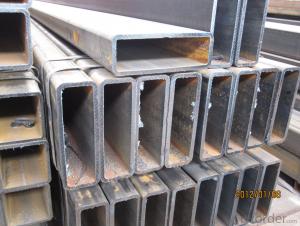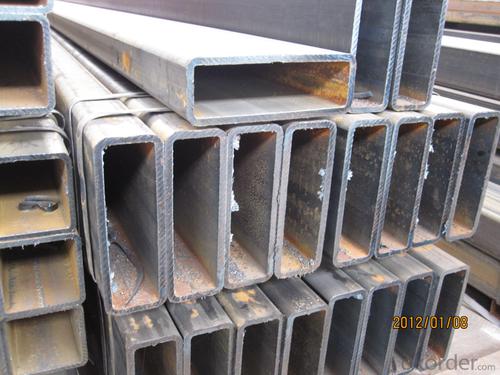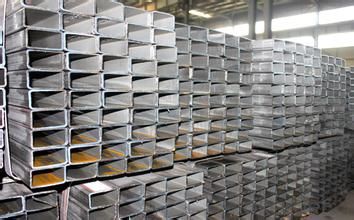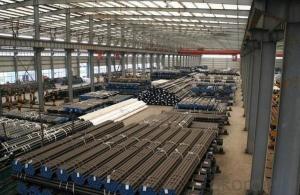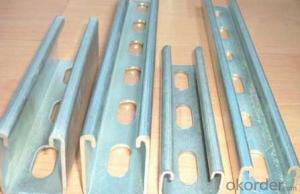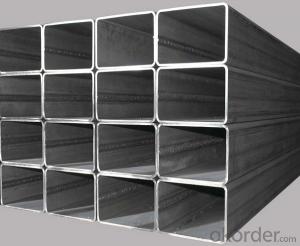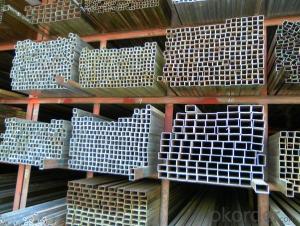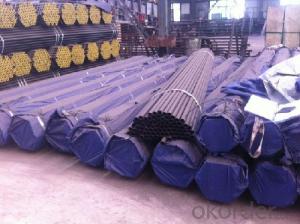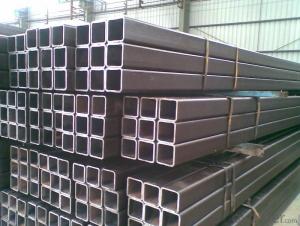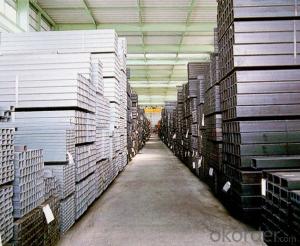Cold Formed Square Hollow Section
- Loading Port:
- China Main Port
- Payment Terms:
- TT or LC
- Min Order Qty:
- 25-35 m.t.
- Supply Capability:
- -
OKorder Service Pledge
OKorder Financial Service
You Might Also Like
Quick Details
| Thickness: | 1.0 - 35 mm | Section Shape: | Square | Outer Diameter: | 20*20-600*600 |
| Place of Origin: | Shandong China (Mainland) | Secondary Or Not: | Non-secondary | Application: | Structure Pipe |
| Technique: | Cold Rolled | Certification: | CE | Surface Treatment: | oil,paint |
| Special Pipe: | Thick Wall Pipe | Alloy Or Not: | Non-alloy | Name: | Square Hollow Steel Pipe/Tube |
| Shape: | Square/Rectangular | Yield Strength: | 360-380Mpa | Tensile Strength: | 560-580Mpa |
| Elongation: | 24-28% | Bend Test: | Qualified | Impact Value: | V-notch |
| Grade: | 20#,45#,16Mn,A210,St45,Q235,Q345,Q195,Q215,10#-45#,A53-A369,ST35-ST52,Q195-Q345 | Standard: | JIS G3465-2006,JIS G3466,GB/T 3094 |
Specifications
OD:15X15-800X800MM,20X30--600X800MM
Thick.:1.0--35.0MM
Steel Hollow Section Image
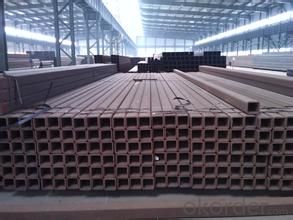
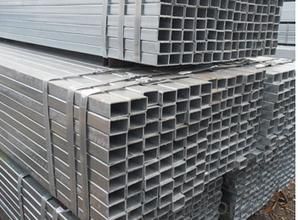
FAQ of Steel Hollow Section
①How is the quality of your products?
Our products are manufactured strictly according to national and internaional standard, and we take a test
on every pipe before delivered out. If you want see our quality certifications and all kinds of testing report, please just ask us for it.
Guaranteed: If products’ quality don’t accord to discription as we give or the promise before you place order, we promise 100% refund.
②How about price?
Yes, we are factory and be able to give you lowest price below market one, and we have a policy that “ for saving time and absolutely honest business attitude, we quote as lowest as possible for any customer, and discount can be given according to quantity”,if you like bargain and factory price is not low enough as you think, just don’t waste your time.Please trust the quotation we would give you, it is professional one.
③Why should you chose us?
Chose happens because of quality, then price, We can give you both.Additionally, we can also offer professional products inquiry, products knowledge train(for agents), smooth goods delivery, exellent customer solution proposals.Our service formula: good quality+good price+good service=customer’s trust
SGS test is available, customer inspection before shipping is welcome, third party inspection is no problem.
Any question, pls feel free to contact us !
- Q: What are the different types of steel pipe coatings for underground applications?
- There are several types of steel pipe coatings used for underground applications, including fusion bonded epoxy (FBE), coal tar enamel (CTE), polyethylene (PE), and polyurethane (PU). These coatings provide corrosion protection and increase the lifespan of the steel pipes in underground environments.
- Q: How are steel pipes used in fire protection systems?
- Steel pipes are an integral part of fire protection systems, primarily used for the distribution of water or other fire suppressants in buildings. These pipes are known for their strength, durability, and resistance to high temperatures, making them ideal for withstanding the intense conditions of a fire. In fire protection systems, steel pipes are commonly used to create a network of pipes that deliver water to sprinkler heads or fire hydrants throughout a building. This network ensures that water is readily available to suppress or extinguish a fire in case of an emergency. One of the key advantages of steel pipes in fire protection systems is their ability to withstand the high pressure and flow rates required for effective fire suppression. Steel pipes can handle the forceful water flow needed to quickly and efficiently distribute water to the affected areas, helping to control and extinguish the fire as soon as possible. Additionally, steel pipes are resistant to corrosion, which is essential for maintaining the integrity of the fire protection system over time. Corrosion can weaken pipes, leading to leaks or even complete failure, which can be catastrophic in a fire situation. Steel pipes, however, have a longer lifespan and require less maintenance compared to other pipe materials, ensuring the system remains reliable and functional for years to come. Furthermore, steel pipes are often used in fire protection systems due to their fire resistance properties. Steel is inherently fire-resistant, meaning it can withstand high temperatures without deforming or losing its structural integrity. This is crucial in fire protection systems as it allows the pipes to remain intact and continue delivering water even in the midst of a fire, ensuring the safety of occupants and minimizing damage to the building. In summary, steel pipes play a vital role in fire protection systems by ensuring a reliable and efficient distribution of water or fire suppressants. Their strength, durability, resistance to high temperatures, and corrosion resistance make them an ideal choice for effectively combating fires and safeguarding lives and property.
- Q: What are the different types of pipe connections used with steel pipes?
- There are several types of pipe connections commonly used with steel pipes. Some of the most common types include: 1. Threaded connections: These connections involve threading the ends of the pipe and using threaded fittings to connect them. This type of connection is typically used for smaller diameter pipes and is easy to install and dismantle. 2. Welded connections: Welding is a common method used to connect steel pipes. It involves joining the ends of the pipes together by melting the metal and fusing them together. Welded connections are durable and strong, making them suitable for high-pressure applications. 3. Flanged connections: Flanges are used to connect pipes by bolting them together. Flanged connections are commonly used in industrial applications and are often used for larger diameter pipes or when the pipe needs to be easily disassembled for maintenance purposes. 4. Grooved connections: Grooved connections involve using grooved fittings that have grooves on the inside to connect the pipes. These connections are often used in fire protection systems and are quick and easy to install. 5. Compression connections: Compression fittings are used to connect steel pipes by compressing a ferrule onto the pipe. This type of connection is commonly used in plumbing applications and provides a tight and secure seal. 6. Mechanical connections: Mechanical connections, such as couplings or clamps, are used to connect steel pipes without the need for welding or threading. These connections are often used for temporary or emergency repairs. Each type of pipe connection has its advantages and disadvantages, and the choice of connection method will depend on factors such as the application, pipe size, and installation requirements. It is important to carefully consider these factors to ensure a secure and reliable connection for steel pipes.
- Q: The outer circle of a seamless steel pipe 50 head into the outer circle of the 40 to close
- Cold drawn steel tube and cold rolled steel pipe mill is a complete set of equipment which combines cold rolling, cold drawing, cold rolling and cold drawing to produce pipes. It is a unit for deep processing of hot-rolled pipes or welded pipes.
- Q: How are steel pipes used in the wastewater treatment industry?
- Steel pipes are commonly used in the wastewater treatment industry for various purposes, including the transportation of wastewater from one area to another, the distribution of treated water to different locations, and the construction of infrastructure such as pumping stations and treatment plants. Due to their durability, resistance to corrosion, and ability to withstand high pressure, steel pipes are essential components in the efficient and reliable operation of wastewater treatment systems.
- Q: How are steel pipes protected against abrasive wear?
- Steel pipes are protected against abrasive wear through various methods such as applying protective coatings, using abrasion-resistant liners, and implementing proper maintenance and monitoring practices.
- Q: How do you calculate the deflection of a steel pipe?
- To determine the deflection of a steel pipe, one must take into account various factors, including material properties, applied loads, and geometrical characteristics. The following steps can serve as a guide: 1. Material properties must be determined. This involves obtaining information about the steel pipe, such as its Young's modulus (E), which signifies its stiffness or resistance to deformation. Typically, this value is provided by the manufacturer or can be found in material databases. 2. The applied loads need to be analyzed. It is necessary to identify the types and magnitudes of the loads acting on the steel pipe. These loads can consist of point loads, distributed loads, or a combination of both. Additionally, the location and orientation of the applied loads must be determined. 3. The geometry of the pipe must be evaluated. The dimensions of the steel pipe, including its length (L), outer diameter (D), and wall thickness (t), should be measured or obtained. Accuracy in these values is crucial for precise calculations. 4. An appropriate calculation method should be selected. Depending on the complexity of the loading and support conditions, one may need to employ either simple beam theory or more advanced structural analysis methods, such as the finite element method (FEM). 5. The relevant equations must be applied. For simple beam theory, the Euler-Bernoulli beam equation can be utilized to calculate the deflection at a specific point on the pipe. This equation assumes the pipe is homogeneous, linearly elastic, and subjected to small deflections. In more complex scenarios, FEM software can handle the calculations. 6. Boundary conditions must be determined. The support conditions at both ends of the pipe, which can include fixed supports, simply supported ends, or combinations of both, need to be identified. These conditions significantly influence the deflection of the pipe. 7. The deflection can be calculated. By using the equations relevant to the chosen method and incorporating the material properties, applied loads, and geometry, one can calculate the deflection at specific points along the steel pipe. The deflection can be measured in terms of vertical displacement or angular rotation. It is important to note that calculating the deflection of a steel pipe may require specialized engineering knowledge and software tools. If one lacks experience in structural analysis, it is advisable to consult a professional engineer to ensure accurate results and safe design.
- Q: What are the main components of a steel pipe?
- The main components of a steel pipe are the pipe body, which is made of steel and provides structural strength and durability, and the pipe ends, which can be either threaded or plain and are used for connecting and joining the pipe to other components or systems. Additionally, steel pipes may also have protective coatings or linings to enhance corrosion resistance and prolong their lifespan.
- Q: Can steel pipes be used for industrial ventilation systems?
- Yes, steel pipes can be used for industrial ventilation systems. Steel pipes are commonly used in industrial settings due to their durability, resistance to extreme temperatures, and ability to handle high-pressure applications. They provide a reliable and long-lasting solution for transporting air in ventilation systems, ensuring proper airflow and maintaining a safe and healthy environment in industrial facilities.
- Q: How are steel pipes used in the manufacturing of power distribution systems?
- Steel pipes are commonly used in the manufacturing of power distribution systems as they provide a reliable and durable solution for transporting and protecting electrical cables. They are used to create conduits that house the cables, ensuring safe and efficient transmission of electricity throughout the system. Steel pipes also offer resistance to corrosion, fire, and extreme weather conditions, making them a suitable choice for power distribution systems.
Send your message to us
Cold Formed Square Hollow Section
- Loading Port:
- China Main Port
- Payment Terms:
- TT or LC
- Min Order Qty:
- 25-35 m.t.
- Supply Capability:
- -
OKorder Service Pledge
OKorder Financial Service
Similar products
Hot products
Hot Searches
Related keywords
